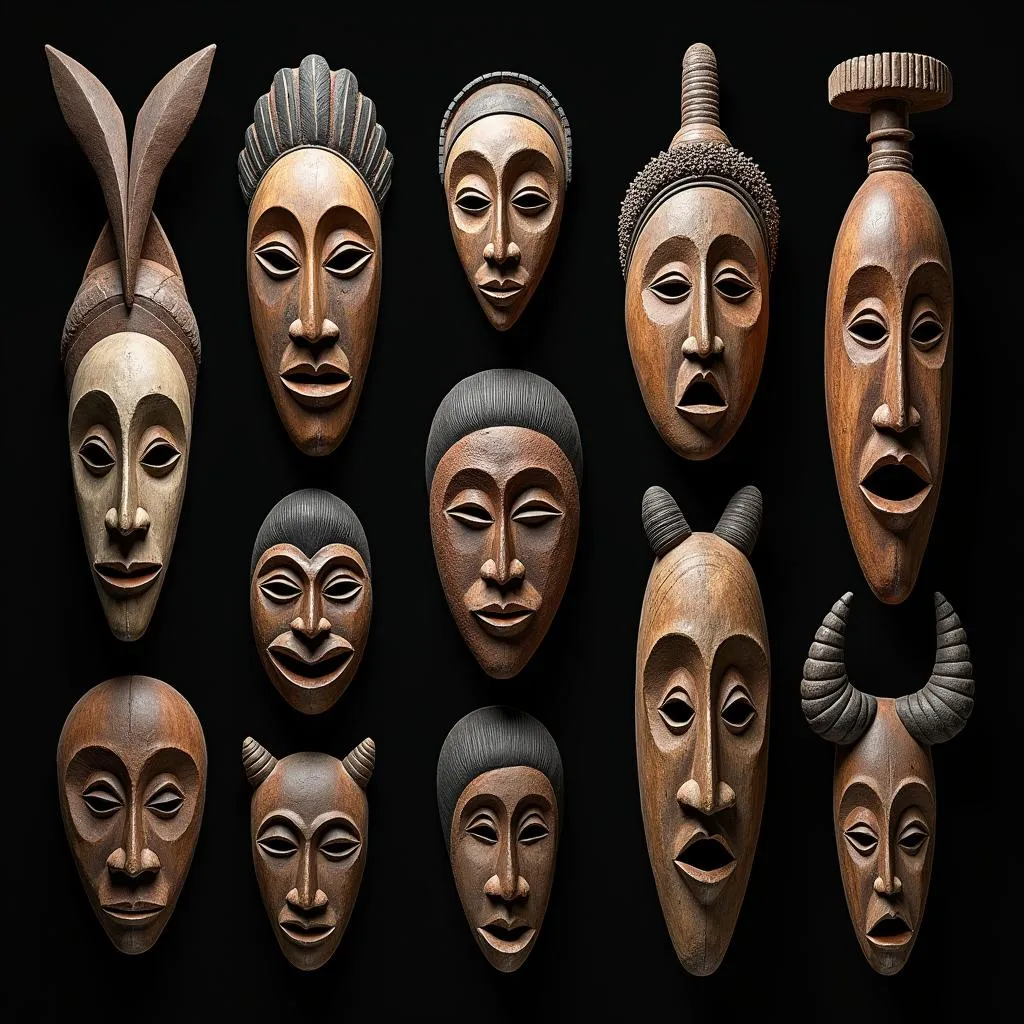African Culture: A Rich Tapestry of Traditions and Diversity
African culture is renowned for its vibrancy, diversity, and deep-rooted traditions. Spanning 54 countries and countless ethnic groups, the continent boasts a captivating blend of languages, art forms, music, and belief systems that have captivated the world for centuries. This exploration delves into the heart of African culture, providing a glimpse into its multifaceted nature.
The Power of Oral Traditions and Storytelling
In many African cultures, history, wisdom, and beliefs are passed down through generations orally. Griots, the revered storytellers, hold a special place, weaving captivating narratives that preserve the past, impart moral lessons, and entertain. These oral traditions, often accompanied by music and dance, serve as a powerful tool for cultural transmission, ensuring the continuity of ancestral knowledge.
 African Storytelling Tradition
African Storytelling Tradition
The Rhythms of Africa: Music and Dance
Music and dance are integral to the African spirit, pulsating through everyday life and special occasions. From the intricate polyrhythms of West African drumming to the soulful melodies of South African choral music, each region boasts its own distinct sounds and rhythms. Dance forms, often infused with symbolic gestures and vibrant costumes, provide a powerful means of expression, celebrating life, and connecting with ancestors.
The Artistry of African Art and Crafts
African art is as diverse as the continent itself, encompassing a wide range of styles, materials, and techniques. From the intricate woodcarvings of the Makonde people to the vibrant textiles of West Africa, each piece reflects the unique cultural identity and beliefs of its creators. African art often serves both aesthetic and functional purposes, embodying spiritual significance and storytelling traditions.
 Display of African Masks
Display of African Masks
Family and Community: The Cornerstones of African Society
Family and community lie at the heart of African culture, shaping social structures and values. Extended family networks provide a strong support system, fostering a sense of belonging and shared responsibility. Respect for elders, communal living, and the importance of Ubuntu – the philosophy of interconnectedness – are deeply ingrained principles that continue to guide social interactions.
The Significance of Spirituality and Ancestral Worship
Spirituality plays a profound role in African culture, influencing daily life and rituals. Many traditional belief systems revere ancestors, who are believed to guide and protect the living. Offerings, libations, and ceremonies are common practices, honoring ancestral spirits and seeking their blessings. While Christianity and Islam have also become prominent religions, traditional spiritual practices often coexist, reflecting the syncretic nature of African belief systems.
The Evolution of African Culture in a Globalized World
African culture continues to evolve in the face of globalization and modernization, embracing new influences while preserving its rich heritage. Contemporary African artists, musicians, and writers are gaining international recognition, fusing traditional forms with modern perspectives. This ongoing dialogue between past and present ensures that African culture remains vibrant, relevant, and continues to captivate audiences worldwide.
African Culture Summary: A Legacy of Resilience and Beauty
From the power of oral traditions to the vibrant tapestry of art forms, African culture is a testament to the continent’s enduring spirit and creative energy. Understanding the depth and diversity of African culture requires embracing its complexities, appreciating its nuances, and recognizing its profound impact on the world stage.


